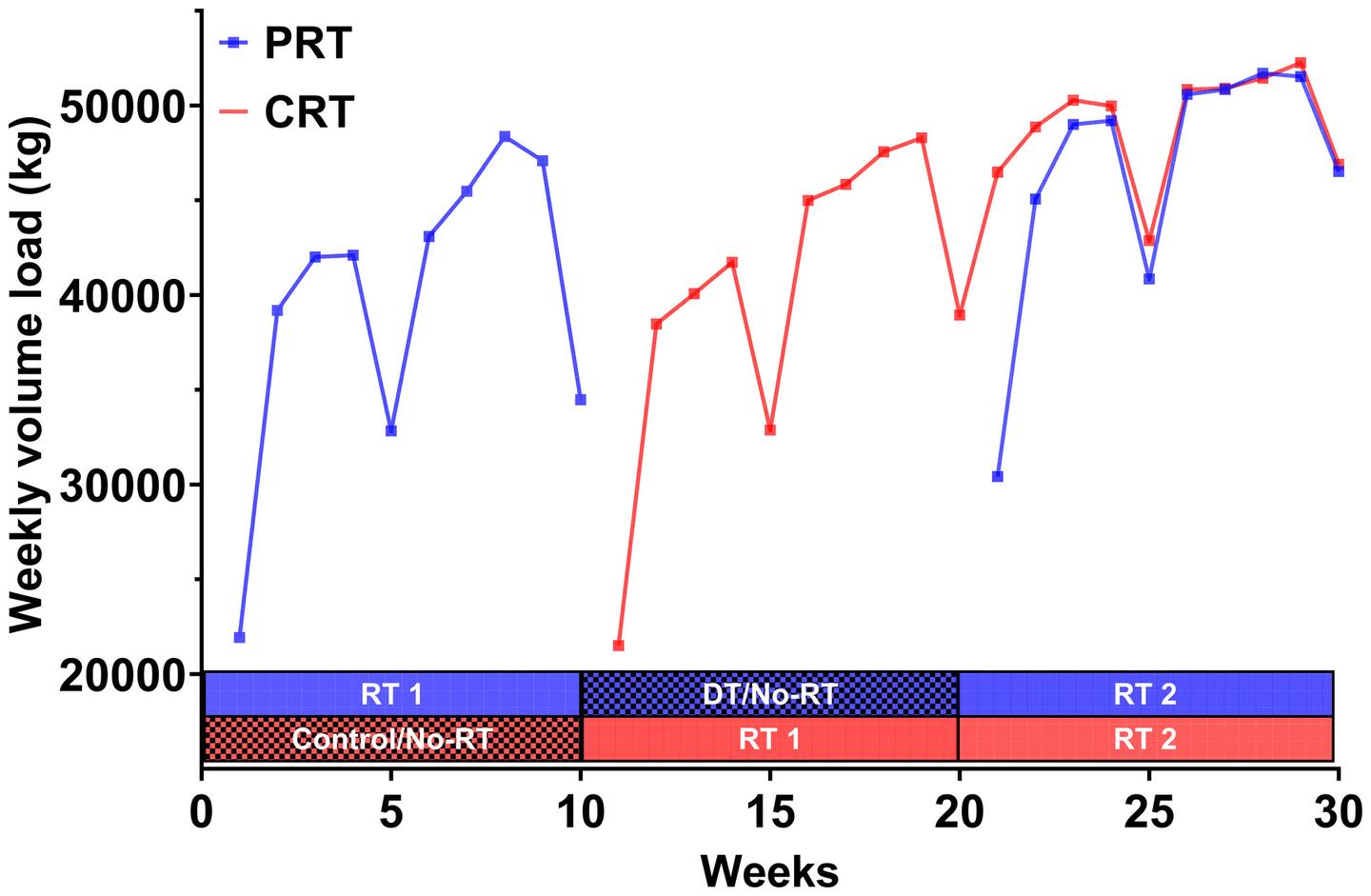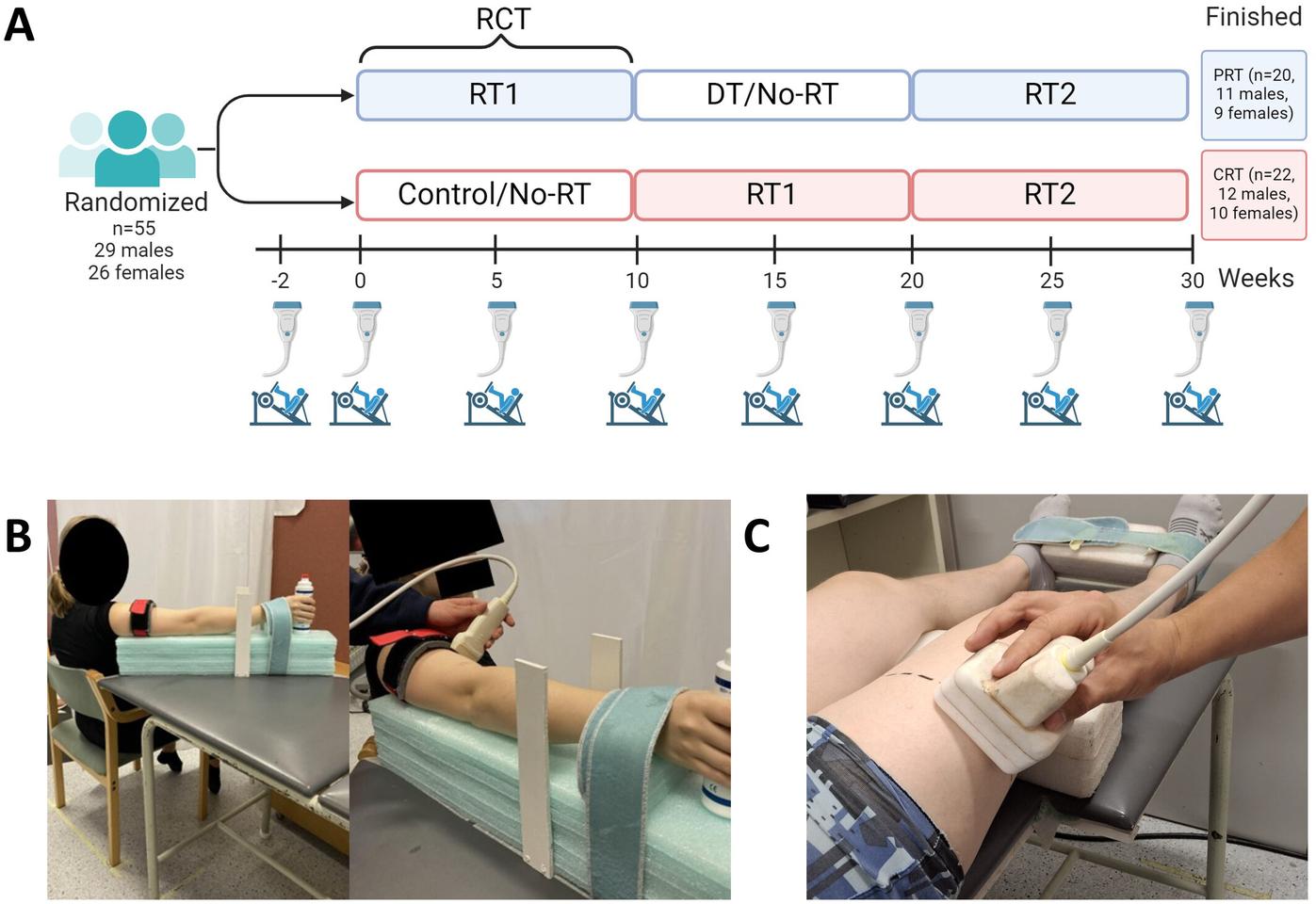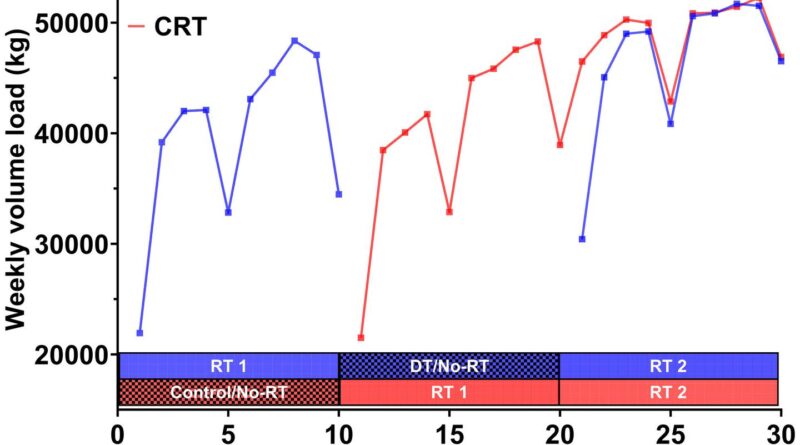Muscle memory: A long rest period from exercise has less impact on strength
Consistency is always the goal of exercise plans, which can cause people to give up completely if they miss a little exercise. But a new study found that even after a 10-week break from strength training, it took people very little time to get back to where they left off. It has revealed fascinating new information about the muscle memory system.
Researchers at the University of Jyväskylä’s Faculty of Sport and Health Sciences in Finland found surprising results in their study, which looked at how taking a 10-week break in the middle of a 20-week resistance training schedule affected muscle size and loss of energy.
In the study, one group of 22 participants worked out twice a week, focusing on strength and muscle size, for 20 continuous weeks. In the second group, 22 participants had the same procedure for the first 10 weeks, before stopping completely for the middle of the study, returning to the second weekly activities at the mark of weeks 20 for another 10 weeks.
What they found was surprising: although muscle size decreased, strength did not decrease as expected, and once exercise resumed after a break, it took weeks just a few to get back to where they were before their training holidays. .’

“In the first few weeks after the break, the progress was very fast and after only five weeks of training again, the level before the break was reached,” said said Eeli Halonen from the Faculty of Sport and Health Sciences.
What’s more, people who exercised continuously for 20 weeks saw a decline in fortunes after the first 10 weeks – and those who took a quick break found they were they pass them in other steps at the end of the lesson.
It is the first time researchers have compared ‘retraining’ techniques with a continuous model.
“For group training that continued for 20 weeks, progress slowed down after the first 10 weeks,” Halonen adds. “This meant that ultimately there was no difference in muscle size or strength development between the groups.”

The participants, whose ages ranged from their late 20s to mid-30s, were physically active but had never participated in any interval training program. long resistance.
Previous studies have shown that a short break in an exercise program will not bring people back to normal, but such a large break has not been tested. Interestingly, most of the energy was better conserved during training, and decreased at a slower rate than expected.
“This can be explained by the fact that changes in the nervous system may be more permanent than changes in the surrounding muscles,” Halonen said.
Naturally, the size of the muscles decreased after the break and it took five weeks to get back to the level of the group going forward, but this is good news for anyone who is worried that an injury, holiday, illness or something such as a possible COVID-19 shutdown. mean starting over after a break.
“Of course, a break slows down the progress of some,” Halonen says, “but it’s comforting to know that it’s possible to get to the pre-break level surprisingly quickly.”
The team will now look at the function of muscle memory at the cellular and molecular level, in an effort to gain a new understanding of how the body sustains changes made through training.
Lead researchers Juha Hulmi and Juha Ahtiainen said: “The physiological mechanism of muscle memory is not fully understood, and our next step is to study in detail the cellular and molecular changes in in the muscles that can explain this phenomenon.”
As the researchers noted in this study: “Although training progress is an important principle in physical activity, our results suggest that experts in RT (resistance training) should not be concerned especially with a 10-week training break, for example, once a year, as long as the RT is active and regular.”
The study was published in a newspaper Scandinavian Journal of Medicine & Science in Sports.
Source: University of Jyväskylä
#Muscle #memory #long #rest #period #exercise #impact #strength
